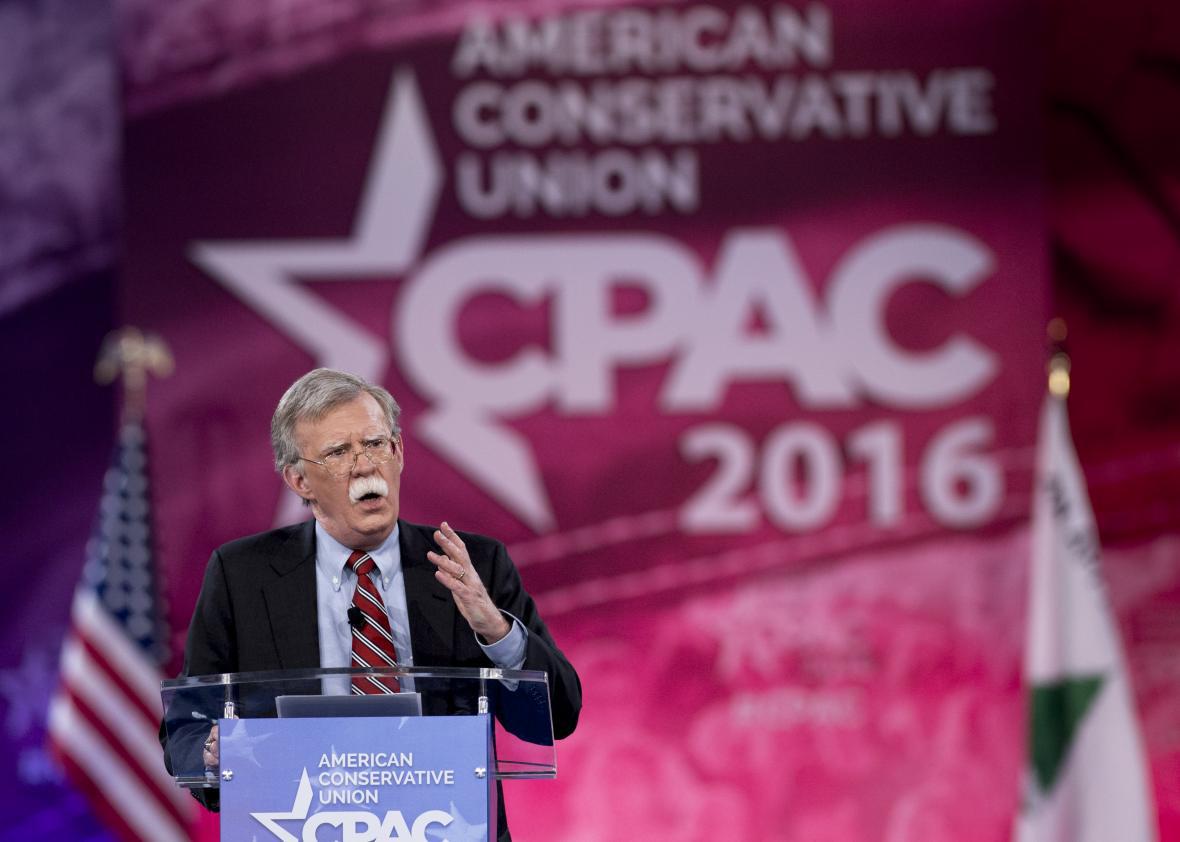Those trying to talk themselves out of despair about the incoming Trump administration may have attached themselves to the idea that at least his isolationist rhetoric means he will avoid unnecessary wars and imperial overreach. On that front, this is not promising:
A permahawk with a reputation for bullying subordinates who disagree with his views, John Bolton was the most controversial U.S. ambassador to the United Nations—an organization he openly disdained—ever. President George W. Bush had to use a recess appointment to get him the job after Senate Democrats, and a few Republicans, refused to vote on his nomination. Perhaps because of his famous penchant for belittling and attacking those who don’t nod approvingly at his opinions and positions, even he concedes that the United States accomplished “little or nothing” of what the Bush administration wanted while he was ambassador.
So what would a Secretary of State Bolton believe? Bolton not only opposes the nuclear agreement with Iran, but he has consistently advocated war to stop the country’s nuclear program. In stark contrast to the president-elect, he has argued in favor of regime change in Syria. Has was a prominent advocate of the Iraq war and continues to defend the invasion to this day.
To his credit, Bolton sticks to his guns, even in the face of available evidence. In my previous job at Foreign Policy, I used to compile an annual “worst predictions” list, and would include Bolton year after year for his repeated assurances that an Israeli airstrike on Iran was just weeks away. I’ll leave it to readers to assess whether or not this trait is preferable to the more ideologically promiscuous Newt Gingrich.
But Bolton is still an odd choice for a president who notably touted his opposition to the Iraq war and skepticism about foreign entanglements as selling points. Given how susceptible Trump is, it seems likelier that Bolton will influence his boss than the other way around. Then again, consider the Economist’s assessment, after reading his techy and combative memoir, that “for all his bluster, Mr. Bolton seems curiously insecure.”
The relationship between these two is starting to make a bit more sense.
